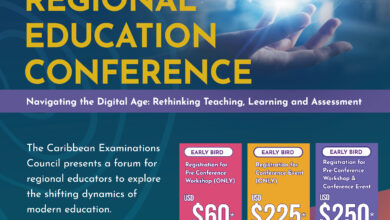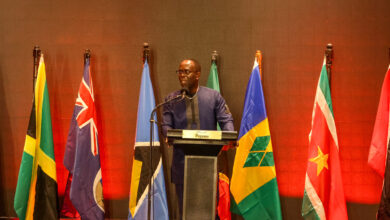The Sixth Special Meeting of the Caribbean Community’s (CARICOM) Council for Human and Social Development (COHSOD) begins in Port-of-Spain, Trinidad and Tobago, starting at 9:00 a.m. on Monday, 31 March with a focus on Education.
The two-day meeting at the Trinidad Hilton Hotel and Conference Centre to be presided over by the Hon. Walter Sandriman, Suriname’s Minister of Education and Community Development, will consider among other issues, the migration of teachers from the Caribbean.
In recent years, a number of developed and developing countries have actively recruited trained teachers from the Region, raising deep concerns. Last July, at a meeting in Barbados, organised by the Commonwealth Secretariat, Ministers of Education of seven Member States and one Associated Member signed the Savannah Accord, which called for research at the national level to determine the extent of the teacher loss and the impact on the education system. It is expected that the meeting will discuss this matter further.
Implementation of the CARICOM Single Market and Economy, with particular reference to the free movement of skills, is also down for discussion. The issue of accreditation is one, which is pertinent to the smooth application of the measures allowing for the free movement of skilled workers and university graduates as provided for in the Revised Treaty of Chaguaramas. Critical to this process is the establishment of accreditation bodies at the national level and also the Regional Accreditation Agency (RAA). An update on the latest position with respect to the accreditation agencies will be presented to the ministers.
The meeting will review progress on the elaboration of a Regional strategy for Human and Social Development which is intended to build on the Human Resource Development vision outlined by the Heads of Government at the 1997 meeting in Montego Bay, Jamaica. This vision identified Education targets for the year 2005 of a 15 percent enrolment at the tertiary level and universal secondary education. It also stressed the need for competence in Spanish and other languages at the secondary and post-secondary levels.
Other matters on the agenda include curriculum issues involving Spanish at the primary level and technology education; tourism education in schools; the sector’s response to HIV/AIDS; and issues relating to the Caribbean Examinations Council, (CXC).





